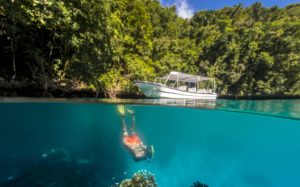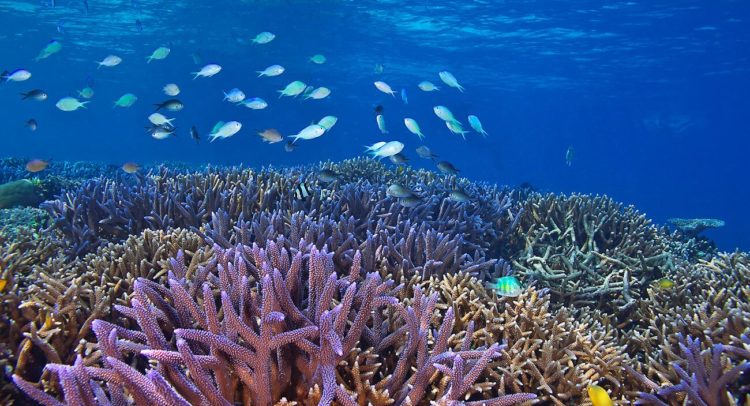The Pacific archipelago of Palau is regarded as one of the best diving locations in the world, with hundreds of varieties of fish and coral found within its reefs.With the scientific investigations alarming report about some popular sunscreens using chemicals that are harmful to ocean treasures,including Coral,Palau has decided to do its part banning many sunscreens.
World’s coral reefs are already under scare threats because of rising Ocean temperatures and human trash. President Tommy Remengesau Jr has signed legislation that bans “reef-toxic” sunscreen that will effect from January 2020 giving sunscreen manufacturers an chance to tweak their formulations in order to make them less toxic to the coral organisms that sustain the reefs.

Banned sunscreens carrying by the tourists into the country will be taken away from them and merchants selling the banned products will be fined up to $1395.Mr Remengesau said in a statement that the penalties would help maintaining the right balance between “educating tourists and scaring them away”. The legislation also requires tour operators to start providing customers with reusable cups, straws and food containers.
Palau’s ban comes after Hawaii, in July, passed a bill to ban the sale of sunscreen containing the chemicals oxybenzone and octinoxate from 2021 in an attempt to protect its reefs. The movement came in the wake of studies that found that much of the 14,000 tons of sunscreen is deposited into the oceans by swimmers every year is killing off coral.Tourists will still be able to carry the banned sunscreen with them into the state or buy it with a doctor’s prescription.
Mr Remengesau said that such a big momentum for the ban was kicked off due to a 2017 report which revealed that sunscreen products were extensively found in Palau’s famed Jellyfish Lake, which was closed for more than a year due to declining jellyfish numbers before being recently reopened.
.
The Science behind the ban
Scientists have found that some chemicals in sunscreen can be toxic to coral reefs, which are a vital part of the ocean’s ecosystem as well as a popular draw for tourists An estimated 14,000 tons of sunscreen wash into the oceans each year.Research shows that chemicals in sunscreen that protect skin from harmful ultra-violet light can also toxic and damage coral. When ocean temperatures rise, the algae that feed coral and lend it its vivid colors leave, causing coral to bleach and eventually die.
But some critics say there aren’t enough independent scientific studies on the issue while others worry that people will suffer from too much sun exposure if they stop using the products.
However Some of the manufacturers, for the time being, have started selling “reef-friendly” sunscreen.
Palau is home to 21,000 people and its economy relies on tourism and fishing. It has a compact of free association with the United States.


